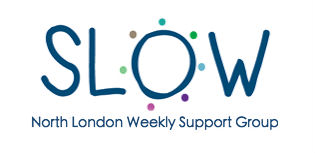
When your child dies your world is changed forever
When grief is new
Your heart is broken in a way you could never imagine possible.
You cannot return to the person that you were before your child died, and the process of coming to terms with the death of your child involves irreversible life changes for you, for your family and for all those around you. This can cause others to feel mystified and shut- out. They seem to grieve the person you were ‘before’. But the most important thing is that you are able to get as much support that you can find, along with the necessary time and space for you to grieve in your own way. There is no map, and no right way, and there is no short – cut. There are no recognisable neat patterns and there is nothing clean about it. There will never be a day that it will feel “acceptable” to you that your child’s life was cut short and that you outlived them. Life has been thrown into unrecognisable turmoil, and you find yourself in a bleak and lonely world that feels completely alien.
Becoming accustomed to the reality of your life without your child physically in it, alongside you, is a slow and painful process. In our high- speed world people want solutions fast. Often others close to you, who love you, may want you to’ ‘recover’ quickly or come to terms with your loss. They may feel frustrated with how long it’s all taking and they may offer advice or well-meaning comments that feel hurtful and inappropriate. They may also have their own opinions as to how you are coping, or not, and may express these without invitation. Sometimes you might sense a feeling of relief from those around you when, in their eyes, you make one tiny step, seemingly forwards. However, for you, it may be that you just got through the last day relatively unscathed by the demons of grief, and it can feel like a hollow victory. (“So I had a better day. But my child is still not here”). You may battle with guilt and try to appease, after all, you know that it is all well-intentioned and loving. All this can make a bereaved parent’s heart hurt even more, that you are not doing it right, that you are a disappointment, that you should be feeling better, for your child’s sake, for your family and friends. You may feel pressured to hide your true feelings, and you can often feel isolated and vulnerable.
Early months
The grief that follows the death of your child unfolds in a way that others find hard to imagine.
In the early weeks and months, you may feel raw with grief, in deep shock and after-shock, inconsolable and unable to imagine a life without your child. It is common to feel that you want to join your dead child, or to feel that you cannot focus on your other children, if there are any. You may experience confusion, memory loss and inability to concentrate on anything going on around you. You may also feel so physically exhausted that you are unable to move, as if you are weighted down. You may be desperate to sleep but unable to. Answering the telephone, and dealing with the mail can seem like mountainous tasks, all requiring you to speak words to people that you are barely able to say to yourself – that your child is gone for ever. Most social events may fill you with dread as they inevitably revolve around conversation about children and everyday family life. For you, the everyday hurts and feels like a luxury you no longer can access. It’s important for those around you to be gentle, and to allow you time and space to spend thinking about your child, wherever you feel and sense that they are.
How others can help
If you are supporting a bereaved parent, don’t expect them to plan too much further than the present day, or sometimes, the present hour.
Offer a quiet place for them to feel they can express themselves if they need to. Sometimes, silence can be most comforting, as bereaved parents often feel crowded by other people’s opinions as well as the thoughts in their own minds as they try to make sense of the chaos they experience. Don’t give them advice, or suggest how they should feel. Your most important act is to listen, be patient, and walk beside them in this most terrible experience. Don’t be tempted to offer advice on how they should deal with their child’s belongings, or what they should do with their child’s bedroom. These are all deeply personal choices, and it is up to the parents alone to decide, in their own time, how to best deal with these things, and they will. Most importantly don’t feel afraid to mention their child’s name, for fear of upsetting them or ‘reminding’ them – they are upset already, and will not have forgotten! You can be sure that their child’s name is never further than a breath away for them. It is always in their heart and mind, and on their lips. To speak or to hear the name of the child they love so much and miss so desperately, and to know that the world has not forgotten, is a great relief. Be sensitive around birthdays, anniversaries and annual events such as Christmas and New Year. A Happy New Year is often a painful reminder of another year further from the life they spent with their child. These events can throw bereaved parents into the grips of grief, no matter how long after a child has died.
In the later months and first few years after your child dies, other feelings may emerge, such as prolonged feelings of bleakness, despair and the realization that your child really is never coming back. Often at this point, family and friends may be wondering if you will ever be able to resume a life with any happiness in, and they may despair themselves. If you are supporting a bereaved parent, be patient, and be there for the long haul.

Further Along
It is important to remember in these later months and years that this is not a permanent state, and often the support of other bereaved parents can be invaluable at this time, when it feels as if the rest of the world has peeled off.
The community of parents who share the death of their child can offer immeasurable depths of support and companionship. Though it feels that you may never feel colour in your life again, it is still an important part grieving. Slowly we find different things that have meaning, and may discover friendships that we never knew we would find. We may find that our priorities are altered in a way that gives us room to live in a different way. We find we are slowly moving – not necessarily because we feel we have made any progress, but because time allows us to look back over the landscape we have trodden and see that we have inched forwards and something of the nature of our grief has changed, our capacity for being in the world without our child has expanded. We may at times feel the presence of our lost child profoundly with us, and at other times, feel alarmed when it may feel hard to envisage or remember our previous lives with them. We sometimes find a way to live or work that honours our child and their gift to us, and can adjust to a life that feels meaningful again. Each grief is unique, each timescale has its own shape, and each imprint of a child’s life is irreversible. It’s not a question of ‘ getting over it’
We put ourselves back together somehow– readjust, recalibrate, relearn our worlds, rather than recover our previous state. Our hearts were broken and the love inside is deeper than ever. We have not ‘moved on’ from our child, we have ‘moved with’ our child. They may not have grown alongside us in life as we dreamed of and expected, but we have grown alongside them in love and grief, and they will be with us and inside us for ever.







